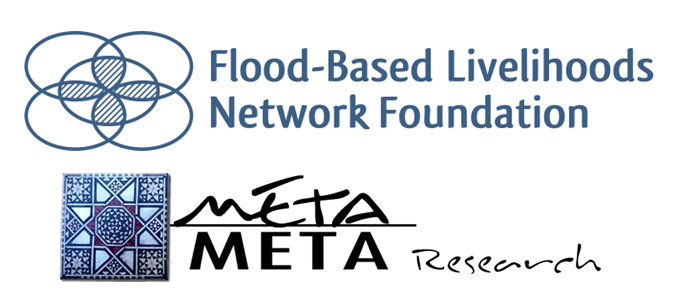Last Friday, September 1st, the FBLN Malawi chapter has organised a national workshop on rainwater harvesting and flood-based farming, in the capital Lilongwe. Being the first of its kind in the country, the meeting served as a platform to raise awareness on flood-based farming and its potential to boost income, food security and climate change mitigation through the introduction of best practices. The meeting follows the recently concluded field review of flood-based farming experiences in Malawi. The key findings from this review were presented during the workshop to get input from key stakeholders for the final report.
The meeting was attended by experts from a wide range of disciplines. Among the institutions represented were public and private universities involved in agriculture and natural resources; Ministry of Agriculture, Irrigation and Water Development; Ministry of Trade and Industry; and international donor agencies, including the World Bank, IFAD and FAO. Following the meeting, flood-based farming is moving towards being mainstreamed in national programmes and policies. Through its work with MetaMeta, the FBLN Malawi chapter already has turned into a strong promoter of rainwater harvesting from roads, in collaboration with extension offices.
Water distribution from newly improved systems in Pakistan
All along the Western side of Pakistan’s Indus River, spate irrigation is practised by farmers who build and rebuild their irrigation systems to catch seasonal floods for irrigation. In Khyber Pakhtunkhwa Region, there are seven rivers with dozens of off-takes from where farmers divert their floods. Building diversion structures in many places is cumbersome without earth-moving machines. Normally, the government allocates bulldozer hours through community leaders who later divide them among the various farmer groups in need of earth-moving machines. In other cases, farmers have to hire bulldozers from the local market by raising financial resources according to the size of their land. The diversion structures are subsequently made collectively.
The provision of earthmoving machines at the governmental level is not mandatory. However, through lobbying by the FBLN Pakistan chapter and the voicing of needs, farmers along the Chakar River in Balochistan were able to receive 5,000 bulldozer hours from the government this year. This was distributed among different water user associations in Talli Ganda, Qaiser Chandia, Mal Gishkori and Chachar. More success can be reported from Kachi in Balochistan, where farmers from Khatoor Ganda were able to secure government funding for the rehabilitation of a system that was abandoned for the last ten years. The works comprise the desilting of feeding canals and drink water ponds.
FBLN at the Stockholm Water Week
The World Water Week was held in Stockholm, Sweden last week as well. Malesu Maimbo and Alex Oduor from ICRAF were present to promote the FBLN, and to raise awareness about the Billion Dollar Business Alliance for Rainwater Harvesting. Booths of particular interest to flood-based livelihoods were the 1) Rural Water Supply Network and 2) SEBA booths. While the first demonstrated techniques to retain, recharge and reuse (ground)water; in the latter, SEBA displayed hydro-solutions to monitor and send floodwater discharge information, using a mobile application. The Week provided a great platform to network with other institutions and find synergy among initiatives, most notably for the Billion Dollar Business Alliance.

Spate irrigation PhDs in Pakistan
Two PhD candidates, Mr. Abdul Ghani Soomro and Ms. Aneela Ghani Soomro have recently started their PhD research at the United States-Pakistan Centre for Advanced Studies in Water (USPCAS-W) in Jamshoro. Mr. Abdul will focus on a Hydrologic Assessment of Sindh’s Khirthar Mountain Range, using remote sensing and modelling. The study is geared towards identifying potential sites for the conservation of water resources. The research outcomes will be used by government stakeholders to develop infrastructure (embankments, check dams and reservoirs). Such water harvesting will strengthen the livelihood base and increase agricultural productivity.
Ms. Aneela’s research will use GIS and modelling to determine the climate change impacts on seasonal floods and groundwater in Kohistan’s Dadu, Jamshoro and Thatta districts. The major issue in the study area is the lack of groundwater retention, causing agricultural productivity to be low during the dry months of the year. The modelling exercise will project the impact of climate change up to 2060 using baseline data from 1961 and 1990. Based on this projection different water management strategies will be developed to cope with water stress in the study area.

Flood-Based Farming course underway!
The 6th edition of the international course in flood-based farming is happening right now in Hargeisa, Somaliland. Trainers from Mekelle University, Ethiopia facilitate the course until September 12th, with 19 participants from Somalia, Somaliland and Uganda.
Video corner!
1) Roads in flood plains
This video shows how floodplain roads can be developed in a way that does not abruptly disrupt flooding patterns and wetland functions. Flood ways allow the water to pass through the road in a controlled manner, thereby not only preserving wetland functions but reducing damage produced by soil and water erosion as well.
2) Tide mill in Portugal’s floodplain
Tide mills use the difference between high and low tides to generate energy. This video shows the historical Mourisca Tide Mill on the Sado River Floodplain in Portugal. The concept may give ideas for present-day small tidal energy applications.
3) The floating gardens of Bangladesh
Going back 10 years in time, this video highlights an indigenous adaptation practice that is used to deal with floods and waterlogging. Baira cultivation continues to be very relevant for communities living in floodplains.
@FBLN_media
FBLN is now sharing FBL news and facts on Twitter. Follow us to find out what is happening around the world to strengthen livelihoods in floodplains. Use the hashtag #FBLN to get your flood-based livelihoods-related message retweeted and spread throughout the FBL community of practice
